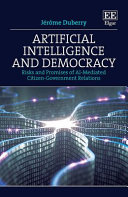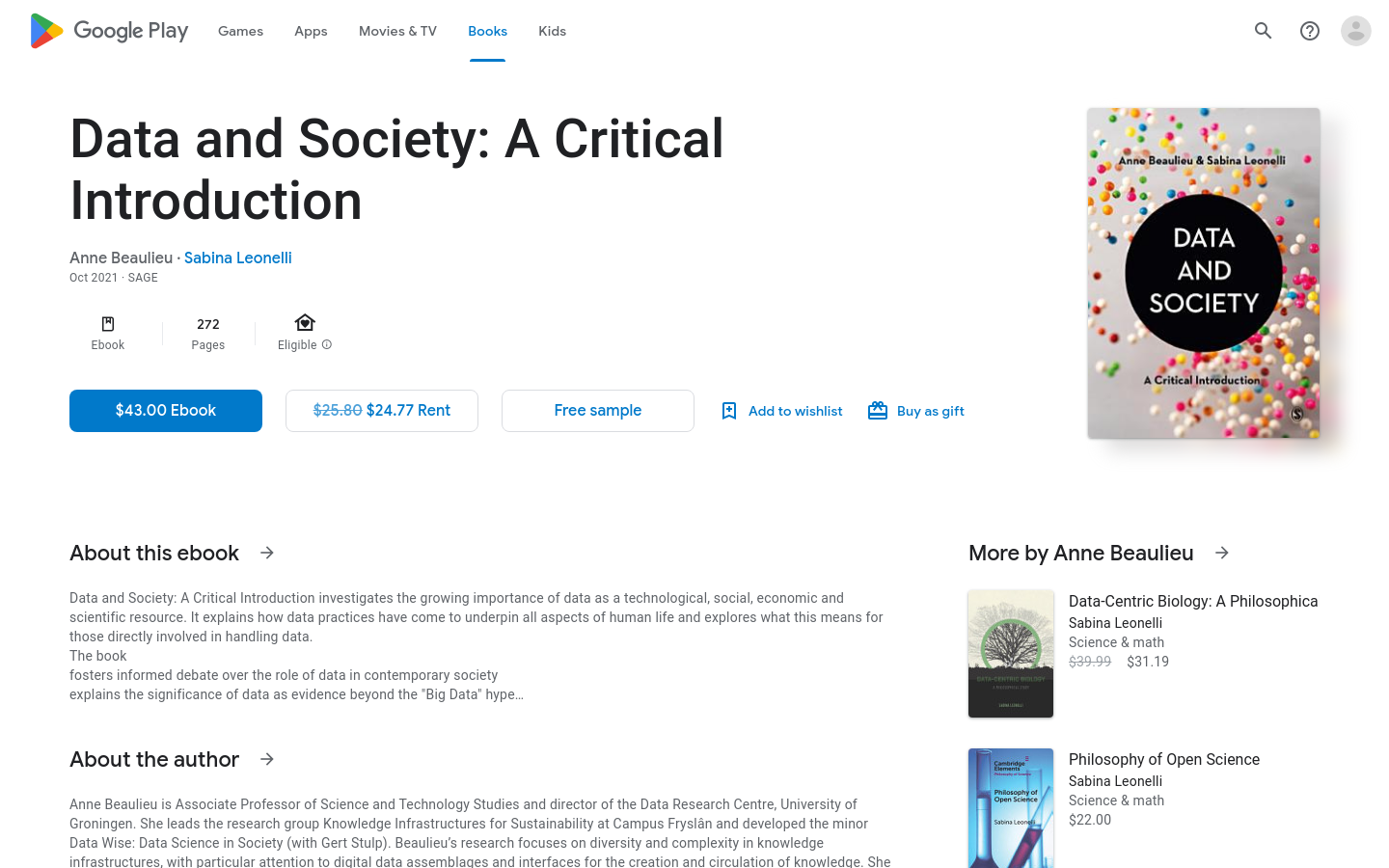Civic Tech Field Guide
Sharing knowledge and productively growing the fieldSearch Results - AI (4495)
Showing 4495 Results

BudLib
Calgary, AB, CanadaBudLib is an open-source Library Management System, built and designed from ground up, primarily for smaller and independent schools.

Global Cyber Alliance (GCA)
United States of America (the)GCA builds communities to deploy tools, services, and programs that provide cybersecurity at global scale.

Through voicemail, apps, websites, and Twitter, Boston’s sophisticated 311 system allows citizens to report potholes, broken streetlights, graffiti, and vandalism that affect everyone’s quality of life. Drawing on Boston’s rich data, Daniel T. O’Brien offers a model of what smart technology can do for cities seeking both growth and sustainability.

The New Companion to Urban Design continues the assemblage of rich and critical ideas about urban form and design that began with the Companion to Urban Design (Routledge, 2011)

The contributions in this volume map out how technologies are used and designed to plan, maintain, govern, demolish, and destroy the city.

Presented at the 1st International Conference on Urban Growth and the Circular Economy that was held in Alicante, Spain the papers included in this book focus on the continuing and rapid growth of cities and their regions of influence and how that has led to the need to find new solutions which allow for promoting their sustainable development

Empowering the New Mobility Workforce: Educating, Training, and Inspiring Future Transportation Professionals enlists a multidisciplinary roster of subject matter specialists who identify the priorities and strategies for cultivating a skilled workforce for the rapidly changing transportation landscape

This open access book is about public open spaces, about people, and about the relationship between them and the role of technology in this relationship

The Oxford Handbook of Political Participation provides the first comprehensive, up-to-date treatment of political participation in all its varied forms, investigates a wide range of topics in the field from both a theoretical and methodological perspective, and covers the most recent developments in the area

The exploration of ways to conceptualize the shaping of the present by socio‐technical futures is the aim of this volume.

The temporal and spatial intersection of information and telecommunication technologies, creative and knowledge economies, and related new manufacturing systems, has been leading to significant effects on urban socioeconomic and spatial configurations and public policies. Specifically, the post-crisis emergence of innovative workplaces to accommodate these changes, is creating socioeconomic and spatial features that are only recently beginning to be explored in the scholarly literature. According to this scenario, this edited book offers a variety of avenues for exploring the relationships between contemporary production activities and new workplaces in several urban contexts. In particular, it focuses on the consequences of these relationships in terms of regeneration of the urban fabric, as well as on their implication in terms of urban policies. This book represents early observation of the fast-growing phenomenon of new productive activities and workplaces against the background of the gig economy and sharing economy paradigms. Central to this discussion is the investigation of the connection between digital technologies, new works and workplaces, and urban change processes and projects, by providing an additional contribution to new urban agendas for contemporary cities. The chapters originally published as a special issue in the Journal of Urban Technology.

Highlighting a wide range of topics including community inclusion, cultural innovation, and public safety, this book is ideally designed for urban planners, entrepreneurs, engineers, government officials, policymakers, academicians, ...

Authors Andrew Young and Stefaan Verhulst, both with The GovLab at New York University, explain how these projects have made governments more accountable and efficient, helped policymakers find solutions to previously intractable public ...

A San Francisco Chronicle Best Book of 2016: “Intelligent and impassioned, Citizen Scientist is essential reading for anyone interested in the natural world

Using numerous cities from different regions around the globe, the book compares how smart cities of different sizes are evolving in different countries and continents.

Yet, the growing role of social media in everyday life has raised challenging questions about privacy, advertising, and the effect on young people that are addressed in this book.

Working with Data in the Public Sector: From Fear to Enthusiasm is the first book designed for practicing and future public administration professionals to help overcome any anxiety about using data effectively in their roles.

In Democracy 2.0, we feature a series of evocative, international case studies that document the impact of alternative and community use of media, in general, and Web 2.0 in particular.

This book offers conceptual frameworks, theoretical insights, and practical lessons for dealing with the problem

This book examines how international organisations (IOs) have struggled to adapt to the digital age, and with social media in particular

This book discusses spatial practices of autonomous social movements, the movements who ‘see their everyday experiences and creations as the revolution they are making’, together with these movements and in taking the diversity of their ...

It shows how public managers need toretain and develop their own IT expertise and to carefully maintain well-contested markets if they are to deliver value for money in their dealings with the very powerful global IT industry

Examining the changing nature of cities in the face of smart technology, this book studies key new challenges and capabilities defined by the Internet of Things, data science, blockchain and artificial intelligence.

This book aims to give a comprehensive overview of all facets of the Smart City transformation and provides concrete tools, checklists, and guiding frameworks.

This book provides a new analytical perspective on the strategies, membership and communication management of political parties in Poland

Crime research has grown substantially over the past decade, with a rise in evidence-informed approaches to criminal justice, statistics-driven decision-making and predictive analytics. The fuel that has driven this growth is data – and one of its most pressing challenges is the lack of research on the use and interpretation of data sources. This accessible, engaging book closes that gap for researchers, practitioners and students. International researchers and crime analysts discuss the strengths, perils and opportunities of the data sources and tools now available and their best use in informing sound public policy and criminal justice practice.

In light of the increased utilization of information technologies, such as social media and the ‘Internet of Things,’ this book investigates how this digital transformation process creates new challenges and opportunities for political

The main objectives of this book are to expose key aspects that have a relevance when dealing with open data viewed from different perspectives and to provide appealing examples of how open data is implemented worldwide.

This timely book brings together key thinkers and projects from a wide range of fields and perspectives into one volume to provide a valuable resource that would enable the reader to take their own critical position within the topic.

This insightful book explores the citizen-government relation, as mediated through artificial intelligence (AI).

Bringing together perspectives from around the world, this volume examines emerging forms of citizen participation in the face of the evolving logics of political communication, and provides a unique and original focus on the gap which ...

Starting from the 1980s, this book provides the first, complete history of the idea of deliberative democracy, analysing its relationship with the earlier idea, and practices, of participatory democracy in the 1960s and 1970s.

However, this book also shows that citizens can become disappointed by the little decision-making power they are granted, as they leave the process often more cynical than before.

Twenty-eight chapters from senior and junior social media scholars cover war, insurrections, revolutions, and quests for social justice through case studies of Cuba, Georgia, Egypt, India, Iran, Jordan, Thailand, Tunisia, and the United

The volume explores the likely long-term effects of such uses on the conduct of politics in the USA and other nations that declare themselves modern democracies and assesses the extent to which they help or hinder viable democratic ...

It will be an essential resource for anybody involved in related industries, as well as anybody interested in learning more about this nascent technology

This book will help today's leaders and thinkers implement these practices in their own pursuit of creative solutions that are both innovative and achievable.

This book is the story of Delmer and his modern investigator, as they each embark on their own quest to manipulate the passions of supporters and enemies, and to turn the tide of an information war, an extraordinary history that is ...

Data and Society: A Critical Introduction investigates the growing importance of data as a technological, social, economic and scientific resource.

This book delves into the effects of technology on the delivery of services to all of us who pay the taxes.

Is this true? In Uneven Innovation, Jennifer Clark considers the potential of these emerging technologies as well as their capacity to exacerbate existing inequalities and even produce new ones

Packed with practical classroom resources, examples from popular culture, and engaging insights into the CIA analyst role, this book is designed to support middle and high school teachers with news and media literacy in social studies, ...

This book contributes to this endeavour by bringing together cutting edge research on the theory and practice of deliberative systems

The book features contributions that report original research in the theoretical, technological, and social aspects of geoinformation methods, as applied to supporting citizen science.

This book provides a concise and usable overview of the practical implications of important public sector United States federal, state, and municipal laws and standards related to information governance, as they pertain to librarians, research staff, universities, corporate regulatory managers, and public-sector information governance professionals. It is the first in a series of two volumes addressing public sector information governance compliance matters from the perspective of our target audience. Topics addressed in the book include: the evolving role of librarians and the need for librarians and legal researchers to understand the principles of information governance, the importance of broad-based regulatory IG principles such as the Federal Records Act, the Paperwork Reduction Act of 1980 and 36 CFR Chapter XII, Subchapter B – Records Management, that have been promulgated by various federal government agencies in framing public-sector IG principles, a survey of interpretive surveys from the Office of Management and Budget (OMB) that further elucidate the core IG principles applicable to public sector stakeholders, case studies detailing the application of important IG principles by federal agencies and bodies, and a survey of important IG issues facing state and local governments.


